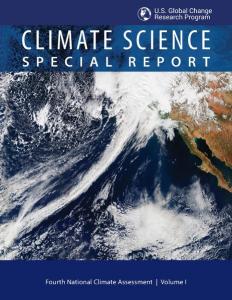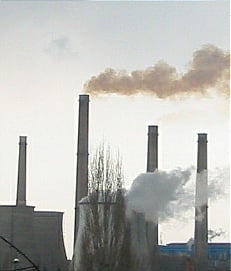 I am usually alert to the reasons why the collectors of the lectionary have chosen the Hebrew Bible passages for certain days in the liturgical year. I admit to being at first a bit stumped about the choice for today’s lections. Joshua is an odd enough book as a whole, but this tiny fragment from that heavily edited Deuteronomic work is quite peculiar as a text for Lent. The Israelites are wandering in the wilderness on their way to the Land of Promise when they stop to circumcise those among them who have not received that rite heretofore (Josh.5:2-8). The text informs us that this was necessary, because all those who escaped from Egypt, all the “warriors” who were circumcised, have died in the desert, but their children have not yet undergone the ritual of the flint knives, so that must now occur. It seems that the older warriors were not allowed to see the Land of Promise, because “they did not listen to the voice of YHWH” (Josh.5:6). But once the younger generation has been circumcised, and once they “were healed” from the surgical ordeal, the text announces, “Today I have rolled away from you the disgrace of Egypt” (Josh.5:9). Precisely what that “disgrace” may be is not made fully clear, but we may assume that it refers to that refusal on the part of the warriors to pay attention to YHWH. All this happens while they are encamped at Gilgal, a place name that is based on Hebrew “to roll,” hence it becomes a living witness to YHWH’s removal, or rolling away, of the sin of the older generation. Thus does the younger generation take over from the failed older generation.
I am usually alert to the reasons why the collectors of the lectionary have chosen the Hebrew Bible passages for certain days in the liturgical year. I admit to being at first a bit stumped about the choice for today’s lections. Joshua is an odd enough book as a whole, but this tiny fragment from that heavily edited Deuteronomic work is quite peculiar as a text for Lent. The Israelites are wandering in the wilderness on their way to the Land of Promise when they stop to circumcise those among them who have not received that rite heretofore (Josh.5:2-8). The text informs us that this was necessary, because all those who escaped from Egypt, all the “warriors” who were circumcised, have died in the desert, but their children have not yet undergone the ritual of the flint knives, so that must now occur. It seems that the older warriors were not allowed to see the Land of Promise, because “they did not listen to the voice of YHWH” (Josh.5:6). But once the younger generation has been circumcised, and once they “were healed” from the surgical ordeal, the text announces, “Today I have rolled away from you the disgrace of Egypt” (Josh.5:9). Precisely what that “disgrace” may be is not made fully clear, but we may assume that it refers to that refusal on the part of the warriors to pay attention to YHWH. All this happens while they are encamped at Gilgal, a place name that is based on Hebrew “to roll,” hence it becomes a living witness to YHWH’s removal, or rolling away, of the sin of the older generation. Thus does the younger generation take over from the failed older generation.
Could this be the reason for the lectionary choice? Does the season of Lent major in new beginnings, fresh starts for the failures of the past? I think that may a partial reason for the choice, but I think there is another one as well. The people now celebrate the Passover ritual at the appointed time on the plains of Jericho, east of the Jordan River on the verge of the Promised Land. But on the very next day, after the Passover celebration is over, “they ate the produce of the land,” including “unleavened cakes,” presumably made from the land’s wheat, and “parched grain,” presumably harvested from the soil of the land (Josh.5:11). These two small acts of eating suggest that the people are now living from the productions of the Promised Land. And furthermore, “the manna ceased on the day they ate the produce of the land; the Israelites no longer had manna; they ate the crops of the land of Canaan that year” (Josh.5:12). YHWH’s provision of manna, that mysterious substance that magically appeared for them during their wanderings in the wilderness, stops as they are able to live off the land that YHWH has given to them. “Manna” in Hebrew is literally “what is it?,” a consciously hilarious idea that the stuff was completely a gift of God, having no connection to any human labor. In fact, in one lengthy manna tale in Exodus 16, this gift of manna becomes a test for Israel’s faith in the provision of YHWH, when they were asked to gather enough manna sufficient for each day, but twice enough on the 6th day in order to observe the Sabbath and a day of rest. Nevertheless, some of them still go out on the 7th day to gather, desiring more than they need, attempting to stockpile manna against its potential disappearance, but find none on the 7th day, thus breaking YHWH’s command, as they are forever wont to do. The end of the manna from God is a symbol of the necessity that they must now work for their own livelihoods; YHWH will no longer give them what they need for sustenance; they are on their own.
This second notion, that we are responsible for our own lives, is also a valuable reason for this text in Lent. Our servile reliance on the magical power of God must cease, says this text. We cannot “leave it up to God,” as too many of our Christian siblings are inclined to do. The contentious issue of the dangers of climate change make the point well.
There are many Americans who still deny the reality of our changing climate, and some of those deniers are in positions of vast power. Even our current president, the mercurial Donald Trump, claims that climate change is a hoax, perpetrated by China or by political liberals; the origins of the hoax changes given the political bogy man of the day that he needs to deflect our attention from his crass and horrifying stupidity. Thus, Trump supports the return of the coal industry, notwithstanding two stubborn facts: coal is the dirtiest fossil fuel we know, bringing rising CO2 emissions while increasing disease among those who mine it, and the coal industry is functionally dead and is not coming back. Renewable resources are not only cleaner than coal but now even cheaper to produce. Clean resource energy production is the future; coal is the rejected past.
Among many evangelical Christians, mired in biblical and theological confusion, we find people who continue to say something like “God will not allow us to destroy our planet, since God made it and sustains it forever.” These are the same folk who in decades past claimed that if we ran out of oil, a prospect that seemed likely at the time, “God would just make some more.” I assume they imagined that a passel of 21st century dinosaurs and carbon-rich plants would suddenly appear, die, and be rapidly turned into vast reserves of fossil fuels, bypassing the millions of years that the first reserves of the stuff needed to be created. This would all be quite funny indeed, the stuff of comedic monologues, if it were not so dangerous. The fact is that we certainly can destroy our only planet, and 97% of all reputable scientists have said that we are doing exactly that. It really is up to us, and no sudden magical gift of fuel-based manna will save us from ourselves. Lent then is a time to take responsibility for our lives.
And this notion ties well into the first reason for the choice of this text, namely that the older generation must make way for the new, for we oldsters have not done all we should have done to leave a world of beauty and joy for our children and grandchildren. We, those of us over 60, “have refused to listen to the voice of YHWH.” We have raped and plundered the earth as if it were an unlimited warehouse of goods, made strictly for our unimpeded enjoyment and pleasure. As a result, it is a diminished planet, shrouded too often in smog, threatened regularly by massive storms and rising seas, doomed to scorching summers and freezing winters, burdened with decreasing crop yields and increased starvation, especially among the poorest of us. The immediate future is grim, and we, the older generation, have made it so. As a card-carrying member of that older generation, I cannot but weep at what I and my older siblings have done to the only planet we all have.
Thus, this text convicts us this Lent that we must repent of what we have done, and continue to do, to the earth. And we must redouble our efforts to do better. God will not magically save us. It is up to us. The manna has ceased. Now we must eat the fruit of our own toil, and that toil must be for the good of the earth not for its continued destruction. I am grateful to the lectionary collectors for this tiny text that has challenged us once again to get to work, because God has called us to that work and stands with us as we begin again to love and enrich the planet that God has given.
(Images from Wikimedia Commons)
((











